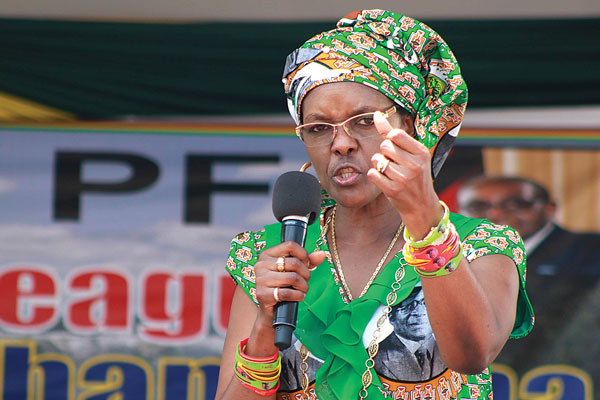
GOROMONZI West Ward 4 councillor Thomas Ngwerume is not your ordinary Zanu PF politician.
BY RICHARD CHIDZA
For a representative of a party accused of human rights violations, here is a man cut from a different piece of cloth, preaching the gospel of peace and tolerance across the political divide.
At a recent meeting, organised by poll advocacy group, Election Resource Centre (ERC), which has embarked on a programme to empower communities and political leaders to engage in conversations as part of efforts to build total communities – Ngwerume said it was time to “engage in progressive politics and move away from the traditional”.

Ngwerume speaks ponderously, but is very clear on what the country’s leadership must do in order to break down barriers among people with different opinions and allegiances.
“Our political leaders must lay down the law. They must tell our people that once elected into office, the President (Robert Mugabe) ceases to represent the party (Zanu PF) that financed his ticket during elections, but the whole country,” he told NewsDay Weekender.
“Before agricultural inputs and food rations are distributed, the consignments should come through government structures rather than the party. If they come through the party it becomes very difficult.”
The ERC has since 2010 trained community representatives under their Communities in Action (CiA) programme and they are now working with traditional leaders, most of whom have been at the centre of the political abuse of some citizens.
- Chamisa under fire over US$120K donation
- Mavhunga puts DeMbare into Chibuku quarterfinals
- Pension funds bet on Cabora Bassa oilfields
- Councils defy govt fire tender directive
Keep Reading
Zanu PF has been accused of perpetrating most of the political violence cases that continue to blight the country.
Ngwerume said traditional leaders, as the focal point of government programmes, were often problematic.
“Our village heads know what is supposed to be done and the way we operate is such that traditional leaders know their people and they are, therefore, our agents in the distribution of whatever resources we might have,” he said with a smile.
“How they conduct themselves is not easy for me to control. I can’t use a whip on them. It is at this point that people might begin to accuse each other of all sorts of things, including perceived political affiliation.”
Ngwerume’s forthright nature in responding to enquiries from rural citizens could signal a new political ethos in Zimbabwe’s quest to build a truly democratic State.
ERC director, Tawanda Chimhini said his organisation’s goal is to “have responsive leaders and a society that is aware of its rights and obligations”.
“It has been a process that, as a resource centre, we have worked on since 2010. Our goal was and remains to empower both communities and their political leaders. To empower communities so that they can be able to bring their leaders to task over election promises and leaders to be able to answer to such inquisitions with a clear conscience and best they can,” he said.
Chimhini said they did not seek to put leaders on the spot but to create dialogue in communities, adding that CiA has helped create a sense of accountability.
He said the situation is critically worse when it comes to donations from First Lady Grace Mugabe.
“It was difficult to control such things because there is a feeling she was donating to Zanu PF members. You will understand there is a constant power game, a will to continue winning would be voters’ opinions will be exploited and that has become second nature to politicians,” he said.











